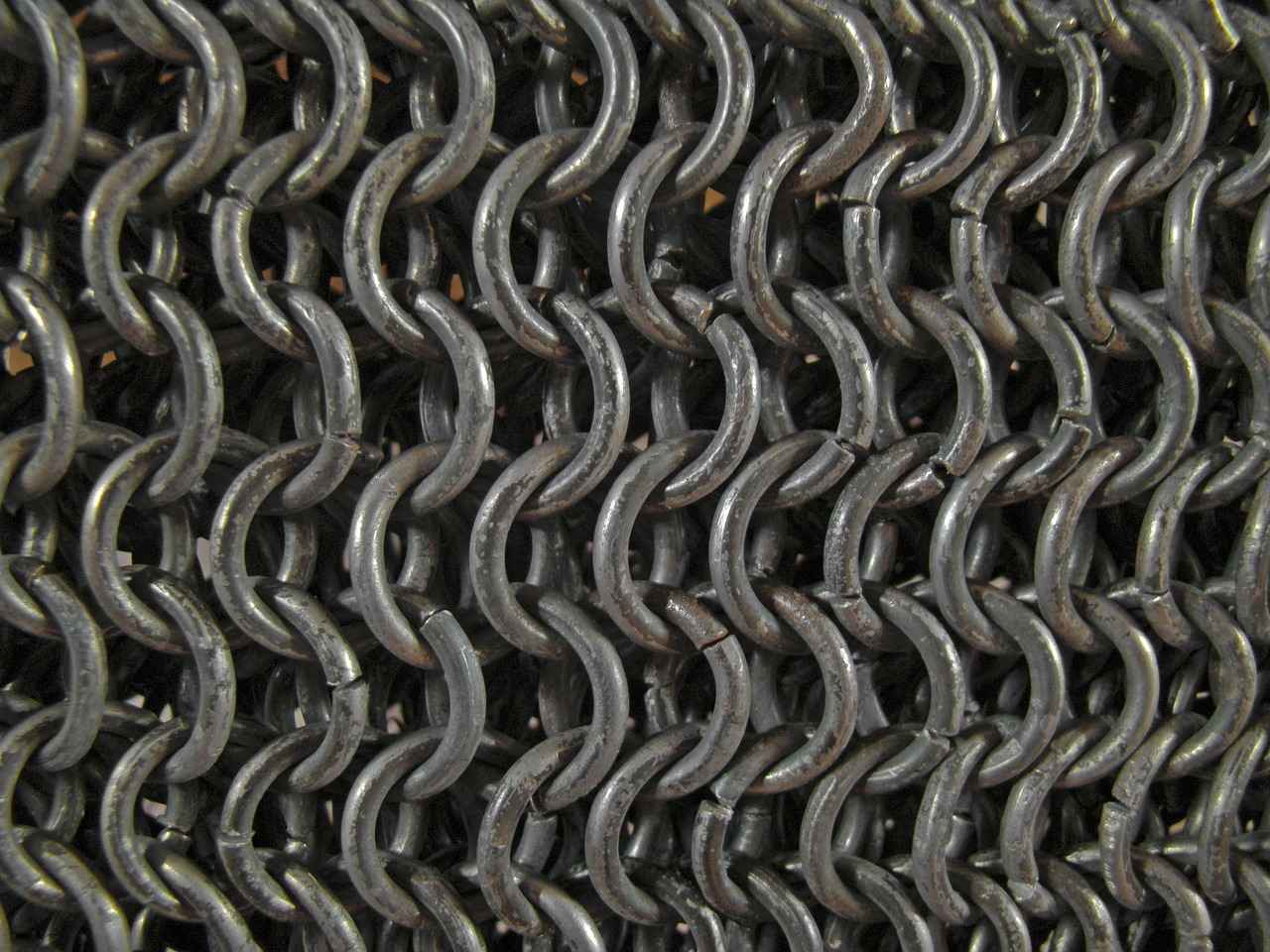This article explores the evolution of pearl necklaces into modern chain designs, highlighting their versatility, styling tips, and the significance of pearls in contemporary fashion.
What is a Chain Necklace Pearl?
A chain necklace pearl is a contemporary jewelry piece that combines the timeless elegance of pearls with the modern aesthetic of chain links. This fusion creates a unique accessory that appeals to a wide range of fashion sensibilities. The design often features varying lengths and styles of chains interspersed with pearls, providing an eye-catching contrast that enhances any outfit.
History of Pearls in Jewelry
Pearls have been cherished for centuries, symbolizing purity and sophistication. Their journey through history reveals their enduring appeal and adaptation into contemporary styles. Initially prized by ancient civilizations, pearls were often associated with royalty and wealth. Their natural beauty made them the gemstone of choice for nobility and influential figures throughout history.
The Ancient Origins of Pearls
Dating back to ancient Egypt, pearls were worn by kings and queens, signifying their status and affluence. The allure of pearls transcended cultures, becoming a symbol of elegance and refinement in various societies.
Symbolism and Cultural Significance
In many cultures, pearls represent wisdom, integrity, and purity. Their role in different traditions and ceremonies adds depth to their allure, making them more than just a fashion statement. For instance, in some Asian cultures, pearls are given as gifts during significant life events, symbolizing good fortune and prosperity.
Modern Interpretations of Pearl Jewelry
Today’s pearl jewelry embraces innovative designs that blend traditional elements with contemporary aesthetics. The rise of chain necklace pearls reflects this evolution, showcasing how pearls can be integrated into modern fashion without losing their classic charm.
Why Choose a Chain Necklace Pearl?
Choosing a chain necklace pearl offers a delightful mix of classic elegance and modern flair, making it a versatile accessory suitable for any occasion. The adaptability of these necklaces allows wearers to express their personal style effortlessly.
Versatility in Styling
Chain necklace pearls can be styled in numerous ways, making them perfect for both casual and formal occasions. Whether worn as a statement piece or layered with other necklaces, they can elevate any outfit. For example, pairing a chain necklace pearl with a simple dress can create an effortlessly chic look.
Layering and Personalization
These necklaces are ideal for layering with other jewelry pieces, allowing wearers to showcase their unique style. Personalization options, such as custom lengths and chain styles, enhance their appeal, making them a cherished addition to any jewelry collection.
How to Care for Your Chain Necklace Pearl
Proper care is essential to maintain the beauty and longevity of your chain necklace pearl. Understanding the best practices for cleaning and storage ensures it remains a timeless piece.
Cleaning Techniques
Regular cleaning helps preserve the luster of pearls and chains. Gentle methods using soft cloths and mild soap are recommended to avoid damage. It is advisable to clean the necklace after each wear to remove oils and dirt that can dull its shine.
Storage Recommendations
Storing your pearl necklace properly prevents scratches and tangling. Using a soft pouch or a separate compartment in a jewelry box is ideal for maintaining its condition. Avoid storing pearls in direct sunlight, as this can cause discoloration over time.
Styling Tips for Chain Necklace Pearls
Styling a chain necklace pearl can enhance any outfit. Here are some practical tips to create stunning looks for various occasions.
Casual Outfits
Pairing a chain necklace pearl with casual attire can elevate your look effortlessly. Consider wearing it with a simple t-shirt or a denim jacket for a chic yet relaxed vibe. This combination adds a touch of elegance to everyday wear.
Formal Occasions
For formal events, layering your chain necklace pearl with other elegant pieces can create a sophisticated ensemble. Opt for complementary colors and styles to enhance your overall appearance. A classic black dress paired with a chain necklace pearl can make a striking statement.
The Impact of Chain Necklace Pearls on Fashion Trends
The rise of chain necklace pearls has influenced contemporary fashion trends, merging traditional elegance with modern design. This trend appeals to a diverse audience, showcasing the adaptability of pearls in today’s fashion landscape.
Influence of Celebrity Fashion
Celebrities and influencers often showcase chain necklace pearls, driving their popularity. Their endorsements highlight how these pieces can be styled in various ways, inspiring fashion enthusiasts to experiment with their looks.
Emerging Trends in Jewelry Design
As fashion evolves, so do jewelry designs. The chain necklace pearl reflects a growing trend towards unique, personalized pieces that resonate with modern consumers. This evolution signifies a shift towards individuality and self-expression in fashion.
Where to Buy Chain Necklace Pearls
Finding the perfect chain necklace pearl involves exploring various retailers, both online and in-store, to discover quality options that fit your style and budget.
Online Retailers
Numerous online platforms offer a wide selection of chain necklace pearls, often featuring customer reviews and detailed descriptions to assist in your purchasing decision. Websites like Etsy and Amazon provide various styles and price ranges.
Local Jewelry Stores
Visiting local jewelry stores allows for a hands-on experience, where you can try on different styles and receive personalized assistance from knowledgeable staff, enhancing your shopping experience. This direct interaction can help you find the perfect piece that suits your taste.
Chain necklace pearls represent a beautiful fusion of tradition and modernity. Their versatility, elegance, and adaptability make them a must-have accessory for anyone looking to enhance their jewelry collection.

What is a Chain Necklace Pearl?
A chain necklace pearl is a contemporary jewelry piece that marries the classic beauty of pearls with the modern flair of chain designs. This unique accessory appeals to a wide range of fashion sensibilities, making it a versatile choice for various occasions. Unlike traditional pearl necklaces that often feature a single strand of pearls, the chain necklace pearl incorporates a series of chain links interspersed with pearls, creating a dynamic interplay between textures and styles.
The combination of elegance and modernity in a chain necklace pearl allows wearers to express their individuality while still embracing a timeless aesthetic. This fusion not only enhances the visual appeal of the necklace but also offers a fresh take on how pearls can be worn in today’s fashion landscape.
Historically, pearls have been symbols of purity and sophistication, often reserved for formal occasions. However, the introduction of chain elements has transformed the way pearls are perceived and styled. Now, they can be effortlessly integrated into casual outfits, making them accessible to a broader audience. The chain necklace pearl can be worn with everything from a simple t-shirt to a chic evening dress, showcasing its remarkable versatility.
In addition to their aesthetic appeal, chain necklace pearls also present an opportunity for personalization. Many jewelers offer customizable options, allowing individuals to choose the length of the chain, the type of pearls used, and even the design of the chain itself. This means that each piece can be tailored to reflect the wearer’s personal style, making it a truly unique accessory.
Moreover, the layering trend in jewelry has gained significant momentum, and chain necklace pearls fit perfectly into this movement. They can be layered with other necklaces of varying lengths and styles, creating a bohemian yet sophisticated look that is both trendy and timeless. Whether paired with chokers, longer chains, or other statement pieces, the chain necklace pearl stands out while complementing the overall ensemble.
As we delve deeper into the significance of chain necklace pearls, it becomes clear that they are more than just a fashion statement. They represent a shift in how we view traditional jewelry, blending the old with the new. This accessibility and adaptability make chain necklace pearls a must-have for anyone looking to enhance their jewelry collection.
In summary, the chain necklace pearl is a stunning example of how classic elements can be reimagined for modern wearers. Its unique design, versatility, and potential for personalization make it a valuable addition to any jewelry box.

History of Pearls in Jewelry
Pearls have captivated humanity for thousands of years, with their rich history woven into the fabric of various cultures and societies. Their allure lies not only in their stunning beauty but also in the symbolism and prestige they carry. This article delves into the fascinating journey of pearls in jewelry, tracing their significance from ancient times to the contemporary era.
The Ancient Origins of Pearls
Pearls are believed to be the first gemstones ever used in jewelry, with evidence of their use dating back to ancient civilizations such as the Egyptians, Greeks, and Romans. In ancient Egypt, pearls were associated with the goddess Isis, symbolizing purity and beauty. They were often worn by pharaohs and adorned in royal tombs, showcasing their status and wealth.
In ancient Rome, pearls were highly prized and considered a luxury item. They were often worn by the elite, including emperors and aristocrats, who believed that pearls brought good fortune. The Romans even had a saying: “A pearl is worth its weight in gold.” This statement reflects the immense value placed on these gems during that time.
Symbolism and Cultural Significance
Throughout history, pearls have held significant cultural meanings. In many cultures, they symbolize wisdom, integrity, and femininity. For instance, in Asian cultures, pearls are often associated with purity and are used in bridal jewelry. They are believed to bring harmony and balance to the wearer, enhancing their beauty and grace.
In addition to their aesthetic appeal, pearls have been used in various rituals and ceremonies. For example, in some Native American tribes, pearls are used in spiritual practices, symbolizing the connection between the earth and the heavens. This cultural significance adds depth to the allure of pearls, making them more than just a fashion statement.
Evolution Through the Ages
As time progressed, the use of pearls in jewelry evolved significantly. During the Middle Ages, pearls became synonymous with Christianity, representing purity and chastity. They were often used in religious artifacts and garments worn by clergy. The Renaissance period saw a resurgence in the popularity of pearls, with intricate designs and elaborate settings becoming the norm.
The 18th and 19th centuries marked a turning point in pearl jewelry, with the introduction of cultured pearls. This innovation made pearls more accessible to the general public, leading to an explosion in their popularity. Women began to wear pearl necklaces and earrings as everyday accessories, solidifying their place in modern fashion.
Modern Interpretations of Pearl Jewelry
Today, pearls are experiencing a renaissance in the world of fashion. Contemporary designers are reimagining pearl jewelry, blending traditional elements with modern aesthetics. This evolution has led to the rise of unique pieces, such as the chain necklace pearl, which combines the elegance of pearls with the edginess of chain designs.
The versatility of pearls allows them to be incorporated into various jewelry styles, from minimalist to statement pieces. Fashion icons and celebrities frequently showcase pearls in innovative ways, further solidifying their status as a timeless accessory. As we look to the future, it is clear that pearls will continue to hold a special place in the world of jewelry, bridging the gap between tradition and modernity.
The Ancient Origins of Pearls
Pearls have captivated humanity for thousands of years, their allure rooted in their **natural beauty** and **uniqueness**. These precious gems, formed within the shells of mollusks, have a rich history that intertwines with various cultures and civilizations. Their journey began in the depths of the oceans, where they were first discovered by ancient peoples who recognized their value.
- Historical Significance: In ancient Egypt, pearls were highly sought after and often reserved for royalty. They were worn by pharaohs and depicted in various artifacts, symbolizing **divine beauty** and **power**.
- Trade and Wealth: The trade of pearls flourished in the ancient world, particularly along the coasts of India and Persia. They became a **symbol of wealth** and status, often exchanged for goods and used as currency in trade.
- Mythology and Folklore: Many cultures have woven pearls into their myths and legends. In ancient Greece, they were associated with the goddess Aphrodite, representing **love and beauty**.
The significance of pearls extended beyond aesthetics; they were believed to possess **healing properties** and were often used in traditional medicine. In ancient China, pearls were thought to bring wisdom and were used in various ceremonies, enhancing their cultural importance.
As civilizations evolved, so did the perception of pearls. The **Roman Empire** saw pearls as the ultimate luxury item, with elite women adorning themselves with elaborate pearl jewelry. This trend continued through the Middle Ages, where pearls were often incorporated into religious artifacts, further emphasizing their **sacred value**.
The craftsmanship involved in pearl jewelry also evolved. Artisans began to develop sophisticated techniques for stringing pearls and creating intricate designs. This attention to detail not only showcased the beauty of the pearls but also highlighted the skill of the craftsmen, making each piece a unique work of art.
In conclusion, the ancient origins of pearls reveal a deep-rooted history that transcends mere decoration. Their journey from the ocean to the necks of royalty speaks to their enduring appeal and significance across cultures. Today, pearls continue to be cherished, bridging the gap between ancient traditions and modern fashion, making them a timeless choice in jewelry design.
Symbolism and Cultural Significance
Throughout history, pearls have held a significant place in various cultures, often representing profound values and beliefs. Their natural beauty and rarity have made them symbols of wisdom, integrity, and purity. In this section, we will explore the deep-rooted symbolism and cultural significance of pearls, shedding light on their roles in different traditions and ceremonies.
In many cultures, pearls are seen as a representation of wisdom and integrity. This perception stems from their formation process, which involves years of development within mollusks. Just as pearls take time to cultivate, so too does wisdom. This connection has led to the belief that wearing pearls can enhance one’s inner strength and moral compass.
Historically, pearls have adorned the necks of queens and emperors, symbolizing their status and power. In ancient Egypt, pearls were associated with the goddess Isis, who represented motherhood and fertility. Similarly, in ancient Rome, pearls were a sign of wealth and were often worn by the elite. Their use in royal regalia and ceremonial attire underscores their significance as symbols of authority and prestige.
In various religious contexts, pearls carry profound meanings. In Christianity, for instance, pearls are mentioned in the Bible as symbols of heavenly beauty and the kingdom of God. The parable of the pearl of great price illustrates the idea of valuing spiritual wealth over material possessions. In Buddhism, pearls symbolize purity and enlightenment, further emphasizing their spiritual connections across cultures.
Today, the symbolism of pearls continues to evolve. In contemporary fashion, they are often associated with elegance and femininity, making them a popular choice for weddings and formal events. The resurgence of pearl jewelry in modern designs reflects a blend of traditional values with contemporary aesthetics, allowing individuals to express their unique identities while honoring cultural heritage.
Pearls are frequently featured in significant life events, such as weddings and christenings. They are often gifted to symbolize love, commitment, and new beginnings. In many cultures, the act of giving pearls signifies a wish for the recipient to embody the qualities associated with these precious gems, such as wisdom and integrity.
The symbolism and cultural significance of pearls extend far beyond their aesthetic appeal. They embody timeless values that resonate across generations, making them not only a fashionable accessory but also a meaningful representation of one’s beliefs and heritage. As we continue to embrace modern interpretations of pearls, their rich history and profound symbolism remain integral to their allure.
Evolution Through the Ages
The journey of pearls in jewelry spans thousands of years, showcasing their remarkable evolution from ancient treasures to contemporary fashion statements. This evolution reflects not only changes in design and technology but also shifts in cultural significance and personal expression.
In ancient civilizations, such as those in Egypt, Mesopotamia, and Rome, pearls were highly coveted for their natural beauty and rarity. They were often associated with royalty and wealth. Egyptian pharaohs adorned themselves with pearl jewelry, believing these gems possessed divine qualities. Similarly, in Rome, pearls became a symbol of luxury, often worn by the elite during grand feasts and celebrations.
During the medieval period, pearls transitioned from secular adornments to sacred symbols. They were frequently used in religious artifacts, representing purity and spirituality. The Renaissance saw a resurgence of pearl jewelry, with intricate designs that combined pearls with gold and precious stones, reflecting the era’s opulence. This period marked the beginning of pearls being incorporated into bridal jewelry, symbolizing the bride’s purity and the hope for a prosperous marriage.
The 18th century brought about a significant shift in pearl sourcing, with natural pearls becoming increasingly popular. The discovery of new pearl beds and the introduction of pearl diving techniques allowed for greater accessibility. By the 19th century, pearls were a staple in Victorian jewelry, often used in elaborate necklaces, earrings, and brooches. This era emphasized romanticism, with pearls symbolizing love and fidelity.
The introduction of cultured pearls in the early 1900s revolutionized the pearl industry. Pioneered by Kokichi Mikimoto, this innovation made pearls more affordable and accessible to the masses. The Art Deco movement embraced bold designs, incorporating pearls into geometric patterns that appealed to modern sensibilities. The mid-20th century saw celebrities like Audrey Hepburn popularizing pearls as a timeless accessory, further cementing their status in fashion.
Today, pearls continue to evolve, adapting to contemporary fashion trends. Designers experiment with various styles, incorporating pearls into statement pieces that blend traditional elegance with modern aesthetics. The rise of sustainable fashion has also influenced pearl sourcing, with a focus on ethical practices in pearl farming. As a result, pearls are now available in a variety of colors, shapes, and sizes, appealing to a diverse audience.
In modern culture, pearls symbolize not just luxury but also individuality and self-expression. They are often used in personalized jewelry designs, allowing wearers to convey their unique style and story. The adaptability of pearls in fashion reflects a broader trend towards inclusivity and diversity, making them a cherished choice for all occasions.
The evolution of pearls through the ages illustrates their enduring appeal and versatility. From ancient symbols of wealth to modern-day fashion staples, pearls have adapted to the changing tides of style and culture, ensuring their place in the world of jewelry for generations to come.
Modern Interpretations of Pearl Jewelry
Pearl jewelry has long been a symbol of elegance and sophistication, but in recent years, it has undergone a remarkable transformation. Today’s designers are embracing a fusion of traditional and modern aesthetics, leading to innovative creations that resonate with contemporary fashion sensibilities. This evolution is particularly evident in the rise of chain necklace pearls, which blend the classic beauty of pearls with the edgy appeal of chain designs.
What Makes Modern Pearl Jewelry Stand Out?
Modern interpretations of pearl jewelry stand out due to their unique combinations of materials, shapes, and styles. The incorporation of chain elements into pearl necklaces has created a fresh look that appeals to a younger audience. The **contrast between the smooth, lustrous surface of pearls and the bold, textured nature of chains** adds depth and visual interest to these pieces.
- Innovative Designs: Designers are experimenting with various chain styles, from delicate links to chunky, bold chains, allowing for a wide range of aesthetic choices.
- Color Variations: While traditional pearls are often white or cream, modern pieces explore a spectrum of colors, including pink, black, and even dyed options, catering to diverse tastes.
- Personalization: Many contemporary jewelry brands offer customizable options, enabling wearers to select their preferred chain length, pearl size, and even the type of metal used in the design.
The Role of Pearls in Contemporary Fashion
Pearls have reestablished themselves as a staple in the fashion world, moving beyond their traditional associations with formal wear. Today, they are embraced in casual outfits, streetwear, and even high-fashion runways. This shift signifies a broader trend of **democratizing luxury**, where pearls are no longer reserved for special occasions but are integrated into everyday wear.
- Casual Chic: Pairing a chain necklace pearl with a simple t-shirt and jeans can instantly elevate a casual look, making it both stylish and approachable.
- Layering Techniques: Modern fashion encourages layering, and chain necklace pearls work beautifully when combined with other necklaces of varying lengths and styles, allowing for a personalized touch.
- Statement Pieces: Chunky chain necklaces adorned with large pearls can serve as statement pieces, drawing attention and sparking conversation, making them ideal for fashion-forward individuals.
Why Choose Chain Necklace Pearls?
Chain necklace pearls offer a unique blend of **timeless elegance and contemporary style**, making them a versatile accessory for any wardrobe. They can be worn alone for a minimalist look or layered with other pieces for a more eclectic vibe.
In addition to their aesthetic appeal, chain necklace pearls also carry significant emotional value. They can be gifted for special occasions, symbolizing love and appreciation, while also serving as a cherished family heirloom passed down through generations.
Conclusion
The modern interpretations of pearl jewelry, particularly in the form of chain necklace pearls, reflect a dynamic shift in fashion. By blending traditional elements with contemporary designs, these pieces not only celebrate the beauty of pearls but also cater to the evolving tastes of today’s consumers. Whether for casual wear or special occasions, chain necklace pearls are an essential addition to any jewelry collection, embodying the perfect balance of elegance and modernity.

Why Choose a Chain Necklace Pearl?
When it comes to accessorizing, few pieces can match the timeless appeal of a pearl necklace. However, the chain necklace pearl introduces a modern twist that makes it a standout choice for fashion enthusiasts. In this section, we delve into the reasons why choosing a chain necklace pearl can elevate your style and enhance your jewelry collection.
A chain necklace pearl offers a unique combination of classic elegance and modern flair, making it an incredibly versatile accessory. This fusion allows it to seamlessly transition from casual to formal settings, catering to various occasions and personal styles.
The versatility of a chain necklace pearl cannot be overstated. It can be paired with a range of outfits, from everyday casual wear to glamorous evening attire. For instance, wearing a chain necklace pearl with a simple white t-shirt and jeans instantly adds a touch of sophistication to a laid-back look. Conversely, it can be layered with other elegant pieces for a more formal ensemble, making it suitable for weddings, cocktail parties, or even corporate events.
One of the most appealing aspects of chain necklace pearls is their adaptability. They can be easily layered with other necklaces, allowing wearers to express their individual style. Mixing different lengths and styles creates a unique look that reflects personal taste. Additionally, many jewelers offer customization options, such as selecting the type of chain or the length of the necklace, further enhancing the personalization aspect.
Pearls have long been associated with purity, wisdom, and elegance. Choosing a chain necklace pearl not only adds beauty to your outfit but also connects you to this rich symbolism. Wearing pearls can evoke a sense of confidence and sophistication, making them a meaningful addition to your jewelry collection.
When selecting a chain necklace pearl, quality is paramount. A well-crafted piece can last for generations, becoming a cherished heirloom. Look for reputable jewelers who prioritize craftsmanship and use high-quality materials. This investment not only enhances your wardrobe but also ensures that your necklace remains a stunning accessory for years to come.
Chain necklace pearls are available at various price points, making them accessible to a wide audience. Whether you’re looking for an affordable fashion piece or a luxurious investment, there’s a chain necklace pearl to fit every budget. This accessibility allows you to enjoy the beauty and elegance of pearls without breaking the bank.
In summary, choosing a chain necklace pearl is a decision that combines elegance, versatility, and personal expression. Whether you’re dressing up for a special occasion or adding a touch of sophistication to your everyday look, this accessory is a must-have. Its ability to blend traditional elements with modern design makes it a timeless piece that will remain relevant in your wardrobe for years to come.
Versatility in Styling
is one of the most compelling reasons to choose a chain necklace pearl. This unique piece of jewelry combines the classic beauty of pearls with the modern edge of chain designs, making it a perfect accessory for various occasions. From casual outings to formal events, chain necklace pearls can be styled in numerous ways, allowing for endless outfit combinations.
One of the standout features of chain necklace pearls is their adaptability. For a casual look, consider pairing a delicate chain necklace pearl with a simple white t-shirt and denim jeans. This combination creates a chic yet effortless vibe, perfect for brunch with friends or a day out shopping. The simplicity of the outfit allows the necklace to shine, drawing attention to its elegance without overwhelming the overall look.
For those looking to make a statement, layering becomes essential. Layering your chain necklace pearl with other necklaces of varying lengths can create a visually appealing, textured look. Try mixing different metals and styles, such as a longer gold chain with a pearl necklace, to add depth and interest. This technique not only enhances the necklace but also showcases your personal style, making it a conversation starter.
When it comes to formal occasions, the chain necklace pearl truly shines. Pairing it with an elegant dress or a tailored suit can elevate your outfit to new heights. For instance, wearing a chain necklace pearl over a classic little black dress adds a touch of sophistication and modernity. Opt for complementary colors in your outfit to ensure that your necklace stands out as the focal point. Consider matching your earrings or bracelet with the necklace for a cohesive look that exudes elegance.
Another way to showcase the versatility of chain necklace pearls is through themed styling. For a bohemian look, mix your pearl necklace with natural stones and earthy tones. Alternatively, for a more minimalist aesthetic, wear it alone or with understated pieces. This flexibility allows you to adapt your jewelry to various themes and settings, making it a staple in your collection.
In addition to its styling options, the chain necklace pearl also offers opportunities for personalization. Many jewelers provide custom lengths and chain styles, allowing you to create a piece that perfectly fits your aesthetic. This personal touch not only enhances the necklace’s appeal but also makes it a meaningful addition to your jewelry box.
Furthermore, the versatility of chain necklace pearls extends beyond just their styling. They can be worn across different seasons, making them a year-round accessory. In the summer, wear them with sundresses or swimsuits, while in the winter, layer them over turtlenecks or under scarves for a chic look. This adaptability makes the chain necklace pearl a wise investment for any jewelry lover.
In conclusion, the chain necklace pearl is a versatile accessory that can seamlessly transition from casual to formal settings. Its ability to be styled in numerous ways, combined with personalization options, makes it a must-have for anyone looking to enhance their jewelry collection. Whether dressing up for a special occasion or keeping it casual, the chain necklace pearl offers endless possibilities for expression and style.
Layering and Personalization
are two key elements that elevate the charm of chain necklace pearls, making them a favored choice among jewelry enthusiasts. These necklaces not only serve as standalone pieces but also shine when combined with other jewelry, allowing wearers to curate their unique style.
When it comes to layering, chain necklace pearls offer incredible versatility. The design of these necklaces allows them to be worn in various lengths, making them ideal for stacking with other necklaces. For instance, pairing a longer chain necklace pearl with a shorter pendant necklace can create a visually appealing contrast. This style not only adds depth to your outfit but also showcases your personality. Experimenting with different lengths and styles can help you discover combinations that reflect your personal aesthetic.
Moreover, layering is not limited to just necklaces. These pearls can be paired with bracelets and earrings to create a cohesive look. For example, wearing a delicate chain pearl necklace alongside matching pearl studs can enhance the overall elegance of your ensemble. This approach allows you to play with different textures and colors, ensuring that your jewelry complements your outfit perfectly.
In addition to layering, the personalization options available for chain necklace pearls are limitless. Many jewelers offer customizable lengths, allowing you to choose the exact size that suits your neckline and style preferences. This feature is particularly beneficial for those who want their jewelry to fit seamlessly with their wardrobe, whether it’s a casual outfit or a formal dress.
Furthermore, you can select from various chain styles, such as smooth, textured, or even embellished chains. Each style brings a unique flair to the piece, enabling you to express your individuality. For example, a delicate chain can lend an air of sophistication, while a chunky chain can make a bold statement. The choice of chain style can significantly influence the overall vibe of your look, making it essential to consider your options carefully.
Another popular personalization aspect is the ability to add charms or pendants to your chain necklace pearl. This feature allows you to create a piece that tells your story or represents something meaningful to you. Whether it’s a charm that signifies a special milestone or a pendant that reflects your interests, these additions can transform a simple necklace into a treasured keepsake.
In conclusion, the layering and personalization options available with chain necklace pearls not only enhance their appeal but also allow wearers to express their unique style. By experimenting with different combinations and customizing your pieces, you can create a stunning jewelry collection that reflects your personality and complements any outfit.

How to Care for Your Chain Necklace Pearl
Proper care is essential for maintaining the beauty and longevity of your chain necklace pearl. By understanding the best practices for cleaning and storage, you can ensure that this elegant piece remains a timeless accessory in your jewelry collection.
The chain necklace pearl is not just a fashion statement; it is an investment in style and beauty. Over time, exposure to elements such as moisture, cosmetics, and even body oils can tarnish the luster of both the pearls and the chain. Regular maintenance is crucial to keep your necklace looking its best.
Cleaning your chain necklace pearl requires a gentle touch to avoid damaging the delicate materials. Here are some effective cleaning techniques:
- Use a Soft Cloth: After each wear, gently wipe the pearls and chain with a soft, lint-free cloth. This simple step helps remove oils and dirt that can accumulate over time.
- Mild Soap Solution: For deeper cleaning, mix a few drops of mild soap with lukewarm water. Dip a soft cloth into the solution, wring it out, and wipe the necklace carefully. Avoid soaking the pearls, as they can absorb water.
- Drying: After cleaning, lay the necklace flat on a clean towel to air dry completely before storing it. This prevents moisture from causing damage.
Proper storage is just as important as cleaning. Here are some recommendations to keep your chain necklace pearl in pristine condition:
- Avoid Tangling: Store your necklace in a separate compartment of your jewelry box or in a soft pouch. This prevents it from tangling with other pieces, which can lead to scratches and damage.
- Temperature and Humidity: Keep your jewelry in a cool, dry place. Extreme temperatures and humidity can affect the integrity of the pearls and the metal components.
- Regular Inspection: Periodically check your necklace for any signs of wear or damage. Look for loose clasps or fraying chains, and address any issues promptly to avoid further damage.
In addition to cleaning and storage, consider these tips to enhance the longevity of your chain necklace pearl:
- Limit Exposure to Chemicals: Avoid exposing your necklace to perfumes, lotions, and cleaning agents. These substances can dull the shine of the pearls and cause discoloration.
- Wear with Care: When wearing your necklace, be mindful of activities that could lead to snagging or damage. Remove it before engaging in strenuous activities or swimming.
- Professional Cleaning: Consider having your necklace professionally cleaned and inspected periodically. Jewelers can provide specialized care that ensures your necklace remains in excellent condition.
By following these guidelines, you can maintain the beauty and integrity of your chain necklace pearl for years to come. Remember, proper care not only preserves the jewelry but also enhances its sentimental value.
Cleaning Techniques
Maintaining the beauty and longevity of your chain necklace pearl requires regular care, especially when it comes to cleaning. Here are some essential techniques to keep your jewelry looking its best:
- Regular Cleaning: It is crucial to clean your pearl necklace regularly to preserve its luster. Pearls are organic gemstones that can absorb oils and dirt from the skin, which may dull their shine over time.
- Gentle Methods: Always opt for gentle cleaning methods. Use a soft, lint-free cloth to wipe the surface of your pearls and chains. This will help remove any surface dirt without scratching the delicate material.
- Mild Soap Solution: For a deeper clean, create a solution of lukewarm water and a few drops of mild soap. Dip the soft cloth into this solution, wring it out thoroughly, and gently wipe the pearls and chain links. Avoid soaking the necklace, as prolonged exposure to water can damage the stringing material.
- Avoid Harsh Chemicals: It is essential to steer clear of harsh chemicals and abrasive cleaners. These substances can erode the surface of the pearls and tarnish the metal in the chain, leading to irreversible damage.
- Drying: After cleaning, allow your necklace to air dry completely before storing it. This prevents moisture from being trapped, which could lead to mold or other damage over time.
- Professional Cleaning: If your necklace has not been cleaned for a long time or shows signs of significant tarnish or dirt buildup, consider taking it to a professional jeweler for a thorough cleaning. They have specialized tools and products that can restore your jewelry to its original beauty.
Storage Recommendations: Proper storage is just as critical as cleaning. Store your chain necklace pearl in a soft pouch or a separate compartment in your jewelry box to prevent scratches and tangling. Avoid storing it with other jewelry pieces that could cause friction. Additionally, ensure that the storage area is dry and away from direct sunlight, as excessive heat can damage pearls.
By following these and storage recommendations, you can ensure that your chain necklace pearl remains a stunning and cherished part of your jewelry collection for years to come.
Storage Recommendations
Proper storage of your chain necklace pearl is essential for preserving its beauty and ensuring its longevity. When it comes to pearls, their delicate nature requires special attention to prevent any damage. Here are some effective storage recommendations that will help you maintain your jewelry in pristine condition.
- Use a Soft Pouch: Storing your pearl necklace in a soft pouch is one of the best ways to protect it from scratches and tangling. Look for pouches made from materials like silk or cotton, which are gentle on the surface of the pearls.
- Separate Compartments: If you have a jewelry box, utilize separate compartments specifically for your pearl necklace. This prevents it from coming into contact with other jewelry pieces that may cause scratches or damage.
- Avoid Plastic: While plastic bags may seem convenient, they can trap moisture and lead to tarnishing or degradation of the pearls. Instead, opt for breathable fabric pouches or boxes.
- Keep Away from Direct Sunlight: Store your pearl necklace in a cool, dark place. Exposure to direct sunlight can fade the color of pearls and affect their luster over time.
- Temperature and Humidity Control: Pearls are organic gems and can be sensitive to extreme temperatures and humidity. Aim to store your necklace in a stable environment to avoid any adverse effects.
Additionally, it’s important to remember that pearls can absorb chemicals from lotions, perfumes, and hair products. Therefore, it is advisable to put on your pearl necklace after applying these products to minimize exposure. Regularly check your necklace for any signs of wear and tear, and consider professional cleaning if necessary.
By following these storage recommendations, you can ensure that your chain necklace pearl remains a cherished part of your jewelry collection for years to come. Proper care and storage not only preserve the beauty of your pearls but also maintain their sentimental value.

Styling Tips for Chain Necklace Pearls
Chain necklace pearls have emerged as a versatile accessory that can transform any outfit, making them a must-have in every jewelry collection. Whether you are dressing up for a formal event or going for a casual outing, these necklaces can enhance your overall look. Here are some practical tips to help you style your chain necklace pearls effectively for various occasions.
- Casual Chic: To achieve a relaxed yet stylish look, pair your chain necklace pearl with a simple white t-shirt and high-waisted jeans. This combination creates a laid-back vibe while the pearls add a touch of elegance. Consider layering with a denim jacket for added flair.
- Office Ready: For a professional setting, opt for a chain necklace pearl with a classic button-up shirt or a tailored blazer. The pearls can soften the structured look of formal attire, making it more approachable. Choose a longer chain to create an elongated silhouette.
- Evening Glam: When attending formal events, don’t hesitate to layer your chain necklace pearls with other statement jewelry pieces. A combination of a pearl chain with sparkling earrings or a bracelet can create a sophisticated ensemble. Choose complementary colors to enhance your overall appearance.
- Bohemian Vibes: For a more eclectic look, combine your chain necklace pearl with a flowy maxi dress or a bohemian-style top. This styling approach allows the pearls to contrast beautifully with more relaxed fabrics and patterns, adding a touch of elegance to an otherwise free-spirited outfit.
- Weekend Casual: On weekends, style your chain necklace pearl with a cozy knit sweater and leggings. This combination is perfect for brunch with friends or a casual day out. The pearls elevate the look, making it feel more put-together without compromising comfort.
Layering Techniques
Layering is a fantastic way to personalize your chain necklace pearls. Consider mixing different lengths and styles of necklaces to create a unique look. For example, pairing a shorter chain necklace pearl with a longer, more delicate chain can add depth and interest to your neckline. Don’t be afraid to experiment with varying textures and materials to achieve a balanced aesthetic.
Accessorizing with Confidence
When styling your chain necklace pearls, confidence is key. Ensure that your outfit feels authentic to your personal style. If you love bold colors, don’t shy away from wearing a vibrant top with your pearls. If you prefer a minimalist look, a simple ensemble with neutral tones can let your chain necklace pearls shine as the focal point of your outfit.
Choosing the Right Length
The length of your chain necklace pearl can significantly impact your overall look. A choker style can accentuate your neck and collarbones, while longer chains can create a more elongated appearance. Consider your body type and outfit choice when selecting the length of your necklace to ensure it complements your look perfectly.
Final Thoughts
In conclusion, chain necklace pearls are a versatile accessory that can be styled in numerous ways to enhance any outfit. By experimenting with different combinations, layering techniques, and lengths, you can create stunning looks suitable for various occasions. Embrace your personal style and wear your chain necklace pearls with confidence!
Casual Outfits
Casual Outfits: Elevate Your Style with a Chain Necklace Pearl
When it comes to casual fashion, the right accessories can transform a simple outfit into a chic statement. One such accessory that has gained popularity in recent years is the chain necklace pearl. This versatile piece combines the elegance of traditional pearls with the modernity of chain designs, making it an ideal choice for casual wear. Here are some insightful tips on how to style a chain necklace pearl with your everyday outfits.
- Pairing with Basic Tees: A classic white t-shirt is a staple in any wardrobe. By adding a chain necklace pearl, you can instantly elevate this basic look. Opt for a longer chain style that falls gracefully over the neckline, creating a striking contrast against the simplicity of the tee. This combination is perfect for a day out or a casual lunch date.
- Layering with Denim Jackets: Denim jackets are timeless pieces that never go out of style. Layering a chain necklace pearl over a casual denim jacket adds a touch of sophistication to your look. Choose a jacket with a slightly open front to allow the necklace to shine through. This creates a balanced look that is both relaxed and polished.
- Styling with Casual Dresses: For those sunny days, a casual dress paired with a chain necklace pearl can create a fresh and effortless vibe. Whether it’s a flowy sundress or a simple shirt dress, the necklace adds a hint of elegance without overpowering the outfit. Consider matching the pearl’s color with the dress for a harmonious appearance.
- Accessorizing with Athleisure: The athleisure trend has taken over casual wear, and a chain necklace pearl can add a unique twist to this sporty style. Pair your favorite joggers and a fitted top with a statement pearl necklace to create an interesting contrast between sporty and chic. This look is perfect for running errands or meeting friends for coffee.
- Mixing Textures: Don’t be afraid to mix textures when styling your chain necklace pearl. Pair it with a knitted sweater or a textured blouse to create visual interest. The contrast between the smooth pearls and the fabric’s texture can enhance your overall look and make it more engaging.
In addition to these styling tips, consider the length and type of chain necklace pearl you choose. Longer chains can create a more casual, laid-back look, while shorter styles can lend a more polished appearance. Experimenting with different lengths and layers can help you find the perfect combination that suits your personal style.
Finally, remember that confidence is key when wearing any accessory. A chain necklace pearl can be a statement piece, but it’s your attitude that will truly elevate your outfit. Embrace the versatility of this beautiful accessory and let it reflect your unique style in your casual wardrobe.
Formal Occasions
When it comes to , the way you accessorize can significantly impact your overall look. One of the standout pieces in any elegant ensemble is the chain necklace pearl. This unique blend of classic pearls and modern chain designs not only adds sophistication but also allows for versatile styling options. Here are some tips on how to layer your chain necklace pearl with other elegant pieces for a truly refined appearance.
Layering is an art form that can elevate your formal wear from ordinary to extraordinary. To achieve a polished look, consider the following techniques:
- Mixing Lengths: When layering necklaces, varying the lengths creates visual interest. For instance, pairing a shorter chain necklace pearl with a longer, more delicate chain can draw attention to your neckline.
- Complementary Materials: Combine your pearl necklace with other materials such as gold or silver chains. This contrast can enhance the elegance of your outfit while maintaining a cohesive look.
- Incorporating Pendants: Adding a pendant to your layered look can create a focal point. Choose a pendant that complements the pearls, such as a simple gemstone or a delicate charm.
When dressing for formal events, color coordination is key. Here are some tips for selecting complementary colors and styles:
- Color Harmony: If your chain necklace pearl features a specific hue, such as white or cream, opt for outfits in soft pastels or rich jewel tones to enhance the overall aesthetic.
- Dress Silhouettes: The style of your dress can dictate how you layer your necklace. A strapless gown, for example, pairs beautifully with a statement chain necklace pearl, while a high-neck dress may require a more subtle approach.
- Accessorizing Wisely: Avoid overwhelming your look with too many accessories. Instead, let your chain necklace pearl be the centerpiece, and choose understated earrings or bracelets that complement rather than compete.
Different formal occasions may call for distinct styling approaches. Here’s how to tailor your look:
- Weddings: For a wedding, consider a romantic dress and layer your chain necklace pearl with floral-themed jewelry to match the celebratory atmosphere.
- Galas: At a gala, a floor-length gown paired with a chain necklace pearl can exude glamour. Consider adding a matching bracelet or earrings for a cohesive look.
- Corporate Events: For business formal events, keep it professional with a tailored suit. A simple chain necklace pearl can add a touch of elegance without being overly flashy.
In conclusion, layering your chain necklace pearl with other elegant pieces can create a sophisticated ensemble for any formal occasion. By mixing lengths, choosing complementary colors, and styling according to the event, you can enhance your overall appearance, ensuring you look polished and put-together. Remember, the key is to express your personal style while embracing the timeless elegance that pearls offer.

The Impact of Chain Necklace Pearls on Fashion Trends
The emergence of chain necklace pearls has significantly shaped contemporary fashion, creating a unique blend of classic elegance and modern design. This fusion has not only revitalized the traditional pearl necklace but also made it appealing to a wider audience, including younger generations who seek to express their individuality through fashion. The following sections delve into how these necklaces have influenced current trends, the role of celebrities in popularizing them, and the evolving landscape of jewelry design.
Chain necklace pearls are redefining fashion norms by merging traditional elements with contemporary aesthetics. This transformation is evident in various fashion runways and street styles, where these necklaces are frequently showcased. The versatility of chain necklace pearls allows them to be worn in diverse settings, from casual outings to formal events, making them a staple in many wardrobes.
Many celebrities have embraced chain necklace pearls, using them to enhance their outfits and make bold fashion statements. This trend has been fueled by social media, where influencers and fashion icons showcase their unique styles. The visibility of these necklaces on high-profile figures has propelled their popularity, inspiring fans to incorporate similar pieces into their own collections.
The rise of chain necklace pearls reflects a broader trend towards personalized and unique jewelry designs. Consumers today are increasingly seeking pieces that resonate with their personal style and values. This shift has led designers to experiment with different materials, lengths, and styles, resulting in a diverse range of chain necklace pearl designs that cater to various tastes and preferences.
Styling chain necklace pearls can elevate any outfit, and their adaptability makes them suitable for various occasions. For casual outings, pairing a simple chain necklace pearl with a t-shirt or casual dress can create a chic look. In contrast, for formal events, layering these necklaces with other elegant pieces can enhance sophistication and elegance. Experimenting with different combinations allows individuals to express their unique fashion sense.
When purchasing chain necklace pearls, it’s essential to consider factors such as quality, design, and personal style. Look for reputable retailers that offer a variety of options, ensuring you find a piece that aligns with your aesthetic preferences. Additionally, consider the length and type of chain, as these elements can significantly impact the overall look and feel of the necklace.
In conclusion, the impact of chain necklace pearls on fashion trends is profound, merging timeless beauty with modern flair. Their versatility, celebrity endorsements, and innovative designs contribute to their growing popularity, making them a must-have accessory for fashion enthusiasts. As trends continue to evolve, chain necklace pearls will likely remain a significant element in the world of jewelry.
Influence of Celebrity Fashion
The world of fashion is constantly evolving, and one of the most significant driving forces behind this evolution is the influence of celebrities and influencers. These public figures have the power to shape trends, inspire styles, and boost the popularity of specific items, including the stunning chain necklace pearls. Their endorsements are not just about aesthetics; they reflect a deeper connection between personal style and cultural significance.
When celebrities adorn themselves with chain necklace pearls, they aren’t merely showcasing a piece of jewelry; they are making a statement. This accessory blends the classic elegance of pearls with the modern edge of chain designs, attracting attention from fashion enthusiasts worldwide. As these necklaces gain visibility on red carpets, social media platforms, and in magazines, they become a symbol of luxury and style, making them highly sought after.
One of the reasons for the growing popularity of chain necklace pearls is their versatility. Celebrities often showcase these pieces in a variety of settings, from casual outings to high-profile events. For instance, a celebrity might pair a delicate chain necklace pearl with a simple t-shirt and jeans for a laid-back look, or layer it with other statement pieces for a glamorous evening ensemble. This adaptability resonates with fans, encouraging them to incorporate similar styles into their wardrobes.
Moreover, the influence of celebrity fashion extends beyond just the pieces they wear. It encompasses the entire lifestyle they represent. Celebrities often share their fashion choices on social media, providing followers with a glimpse into how they style their outfits. This accessibility allows fans to emulate their favorite stars, leading to a surge in demand for specific jewelry items like chain necklace pearls. Influencers, in particular, play a crucial role in this dynamic by curating looks that appeal to younger audiences, further amplifying the trend.
Additionally, the endorsement of chain necklace pearls by well-known figures often comes with a narrative. Many celebrities share personal stories about their jewelry, discussing its significance or the emotions it evokes. This storytelling aspect adds depth to the accessory, transforming it from a mere fashion item into a cherished piece of art. When a celebrity explains how a chain necklace pearl symbolizes resilience or elegance, it resonates with fans on a personal level, making them more likely to invest in similar pieces.
In conclusion, the influence of celebrity fashion on the popularity of chain necklace pearls cannot be understated. As these public figures continue to showcase the beauty and versatility of this accessory, they inspire countless individuals to embrace their unique styles. The fusion of classic elegance with modern design, coupled with the personal narratives shared by celebrities, solidifies the chain necklace pearl as a must-have item in today’s fashion landscape.
Emerging Trends in Jewelry Design
As we delve into the world of jewelry design, it becomes evident that the landscape is continually evolving. The **chain necklace pearl** is a prime example of how traditional elements are being reimagined to cater to modern tastes. This article explores the latest trends in jewelry design, emphasizing the significance of personalization, sustainability, and innovative materials.
Personalization in Jewelry
One of the most notable trends in contemporary jewelry design is the shift towards **personalized pieces**. Consumers today are increasingly seeking jewelry that reflects their individual style and story. Chain necklace pearls can be customized in various ways, from selecting the type of chain to choosing the arrangement of pearls. This shift towards personalization allows wearers to express their unique identity, making each piece not just an accessory but a statement of self.
- Custom Lengths: Tailoring the length of a chain necklace pearl to suit personal preferences enhances its wearability.
- Varied Chain Styles: Different chain designs, such as curb, box, or link chains, can dramatically change the look and feel of the necklace.
- Engraving Options: Adding initials or meaningful dates can transform a simple necklace into a cherished keepsake.
Sustainability in Jewelry Design
With growing awareness around environmental issues, sustainability has become a crucial consideration in jewelry design. Consumers are now more inclined to support brands that prioritize eco-friendly practices. The use of ethically sourced materials and sustainable production processes is on the rise. For instance, many jewelers are opting for **recycled metals** and responsibly sourced pearls, ensuring that their creations have a minimal environmental impact.
- Ethical Pearls: Many brands are now focusing on pearls that are cultivated in sustainable environments, ensuring both quality and ethical standards.
- Recycled Materials: Incorporating recycled gold and silver into designs reduces waste and promotes a circular economy.
- Eco-Friendly Packaging: Brands are also adopting sustainable packaging solutions to further minimize their carbon footprint.
Innovative Materials and Techniques
The emergence of new materials and design techniques is another exciting trend in jewelry design. Designers are experimenting with unconventional materials such as **ceramics**, **wood**, and **biodegradable plastics**, creating pieces that are not only visually striking but also unique in texture and form.
Additionally, advancements in technology have enabled the use of **3D printing** in jewelry design, allowing for intricate and complex designs that were previously difficult to achieve. This technology provides designers with the flexibility to create customized pieces quickly and efficiently.
- 3D Printing: This technique allows for rapid prototyping and the creation of intricate designs that can be tailored to individual preferences.
- Mixed Materials: Combining traditional materials like pearls with modern elements such as acrylic or resin can result in innovative designs that appeal to a broader audience.
- Smart Jewelry: The integration of technology into jewelry, such as fitness tracking or notifications, is becoming increasingly popular, merging functionality with fashion.
Influence of Social Media and Celebrity Trends
Social media platforms have transformed how jewelry trends emerge and spread. Influencers and celebrities often showcase their favorite pieces online, driving trends and inspiring consumers. The visibility of chain necklace pearls on these platforms has contributed to their rising popularity, as they are versatile enough to be styled in various ways.
- Influencer Collaborations: Many brands partner with influencers to create exclusive collections, tapping into their followers’ preferences and styles.
- Visual Platforms: Platforms like Instagram and Pinterest serve as visual showcases for jewelry designs, allowing consumers to discover and share their favorite pieces.
- Celebrity Endorsements: High-profile endorsements can elevate a piece of jewelry from obscure to must-have status overnight.
In conclusion, the jewelry design landscape is vibrant and ever-changing. The emergence of personalized, sustainable, and innovative designs reflects a broader shift in consumer preferences. As trends continue to evolve, chain necklace pearls stand out as a perfect embodiment of this transformation, merging classic elegance with modern sensibilities.

Where to Buy Chain Necklace Pearls
Finding the perfect chain necklace pearl involves exploring various retailers, both online and in-store, to discover quality options that fit your style and budget. With the increasing popularity of these unique accessories, the marketplace is filled with a plethora of choices. Here, we will delve into the best avenues for purchasing chain necklace pearls, ensuring you make an informed decision.
The convenience of online shopping has transformed how we buy jewelry, including chain necklace pearls. Numerous e-commerce platforms specialize in jewelry, offering a wide selection of styles, lengths, and price ranges. Websites like Amazon, Etsy, and Blue Nile provide extensive catalogs, often featuring customer reviews that can guide you in your selection process.
- Amazon: Known for its vast array of products, Amazon offers numerous chain necklace pearls from various sellers. You can filter by price, style, and customer ratings to find the perfect piece.
- Etsy: If you’re looking for unique, handcrafted items, Etsy is the go-to platform. Many artisans create bespoke chain necklace pearls, allowing for personalized touches that make your jewelry stand out.
- Blue Nile: This retailer is renowned for its quality and selection. Blue Nile specializes in fine jewelry, ensuring that the chain necklace pearls you purchase are of the highest standard.
While online shopping offers convenience, visiting local jewelry stores can provide a more tactile experience. Trying on different styles allows you to see how they complement your outfit and personal style. Furthermore, knowledgeable staff can offer personalized recommendations based on your preferences.
- Independent Jewelers: Many independent jewelers curate unique collections of chain necklace pearls. Supporting local businesses not only helps your community but often leads to discovering one-of-a-kind pieces.
- Department Stores: Larger department stores frequently carry a selection of jewelry, including chain necklace pearls. Stores like Macy’s or Nordstrom often have a dedicated jewelry section where you can explore various brands and styles.
When searching for the ideal chain necklace pearl, it’s essential to consider several factors. The quality of the pearls, the type of chain, and the overall design are critical aspects that influence your purchase.
- Quality of Pearls: Look for pearls that exhibit a high luster and smooth surface. Cultured pearls vary in quality, so it’s vital to understand the grading system.
- Chain Material: Chains can be made from various metals, including gold, silver, and stainless steel. Choose a material that suits your skin sensitivity and style preferences.
- Design and Length: Chain necklace pearls come in various designs, from minimalist to elaborate. Consider how the design aligns with your wardrobe and the occasions you plan to wear it.
Social media platforms like Instagram and Pinterest have become invaluable resources for discovering new trends and styles in jewelry. Many jewelers and brands showcase their pieces on these platforms, allowing you to see how they look in real life.
- Influencer Recommendations: Following fashion influencers can provide insights into popular styles of chain necklace pearls. These influencers often share discount codes, making your purchase more affordable.
- Brand Websites: Many jewelry brands promote their latest collections on social media, directing you to their websites for purchasing. This can be a great way to stay updated on new arrivals.
In conclusion, whether you choose to shop online or explore local jewelry stores, finding the perfect chain necklace pearl is an exciting journey. By considering the quality, design, and where to buy, you can ensure that your new accessory is a cherished addition to your jewelry collection.
Online Retailers
Online Retailers: Your Go-To Source for Chain Necklace PearlsIn today’s digital age, shopping for jewelry has become more accessible than ever. Among the various options available, online retailers stand out for their extensive selections and convenience. When it comes to acquiring a stunning chain necklace pearl, these platforms offer numerous advantages that traditional brick-and-mortar stores may not provide.
Shopping online for chain necklace pearls allows customers to explore a diverse range of styles, materials, and price points without the limitations of physical store inventories. Moreover, online platforms often feature user-friendly interfaces, making it easy to filter searches based on specific preferences such as length, color, and design.
One of the significant benefits of shopping online is the availability of customer reviews. These reviews provide insights into the quality and authenticity of the jewelry. Potential buyers can read about other customers’ experiences, helping them make informed decisions before purchasing. Look for reviews that discuss the necklace’s durability, luster, and overall satisfaction.
Online retailers typically provide detailed product descriptions, including information about the materials used, dimensions, and care instructions. This transparency ensures that customers know exactly what they are purchasing, eliminating the uncertainty that can come with buying jewelry. High-quality images also allow shoppers to see the intricate details of the chain necklace pearls, enhancing their confidence in the buying process.
Another advantage of online shopping is the ability to compare prices across different retailers easily. Shoppers can quickly assess where to find the best deals on chain necklace pearls, enabling them to make budget-friendly choices. Some websites even offer price alerts, notifying customers when their desired items go on sale.
Shopping for chain necklace pearls online provides unparalleled convenience. Customers can browse collections at any time of day, from the comfort of their homes. This accessibility is especially beneficial for those with busy schedules or those living in areas where high-quality jewelry stores are not readily available.
Reputable online retailers typically have clear return policies, allowing customers to return or exchange items that do not meet their expectations. Additionally, many offer customer support via chat, email, or phone, providing assistance if any issues arise during the purchasing process.
Several online platforms specialize in jewelry, offering a wide selection of chain necklace pearls. Websites like Etsy, Amazon, and specialized jewelry retailers provide various options, catering to different tastes and budgets. These platforms often feature unique designs and artisan-crafted pieces that may not be available in traditional stores.
Overall, online retailers present a fantastic opportunity for anyone looking to purchase chain necklace pearls. With their extensive selections, customer reviews, detailed descriptions, and competitive pricing, they have transformed the jewelry shopping experience. Embracing the convenience of online shopping allows you to find the perfect piece that suits your style and budget, making it a worthwhile endeavor for jewelry enthusiasts.
Local Jewelry Stores
Local Jewelry Stores: A Unique Shopping ExperienceWhen it comes to purchasing jewelry, offer an unparalleled experience that online shopping simply cannot replicate. These stores provide a chance to engage directly with the products, allowing customers to touch, feel, and try on various pieces. This hands-on approach is crucial when selecting jewelry, as it enables shoppers to assess the quality, style, and fit of each item.
Shopping at local jewelry stores comes with several advantages. Firstly, the personalized assistance from knowledgeable staff can significantly enhance your shopping experience. Employees in these stores are often passionate about their craft and can offer valuable insights into different styles, materials, and trends. This expert guidance is especially beneficial for those who may feel overwhelmed by the vast array of choices available.
Visiting a local jewelry store allows you to try on different styles and see how they complement your look. Whether you are searching for a classic piece or something more contemporary, being able to physically wear the jewelry can help you make an informed decision. You can observe how the light interacts with the stones and metals, ensuring that you choose a piece that truly resonates with your personal style.
Another significant advantage of shopping at local jewelry stores is the opportunity to build a relationship with the jeweler. These connections can lead to customized services, such as bespoke designs or alterations. Many jewelers are willing to collaborate with customers to create unique pieces that reflect their individual tastes and preferences. This level of personalization is often unavailable in larger retail chains or online platforms.
By choosing to shop at local jewelry stores, you are also supporting your community. Local businesses often contribute to the local economy, creating jobs and fostering a sense of community pride. Additionally, many local jewelers prioritize ethical sourcing and sustainable practices, ensuring that your purchase is not only beautiful but also responsible.
Local jewelry stores typically carry a wide range of collections, from vintage to contemporary designs. This diversity allows customers to explore various styles and find the perfect piece for any occasion. Whether you are looking for a statement necklace or a delicate pair of earrings, local jewelers often curate their collections with unique finds that reflect current trends while honoring traditional craftsmanship.
In summary, visiting local jewelry stores provides a rich and rewarding shopping experience. With personalized assistance, the ability to try on pieces, and the opportunity to support local businesses, these stores offer benefits that online shopping cannot match. Whether you are purchasing a gift or treating yourself, local jewelry stores are an excellent choice for finding unique and beautiful pieces.

Conclusion
Chain Necklace Pearls: The Modern Twist on Classic Pearls
In the world of jewelry, chain necklace pearls stand out as a remarkable blend of tradition and modernity. This unique accessory captures the timeless elegance of pearls while incorporating the contemporary flair of chain designs. As fashion continues to evolve, these necklaces have become essential for anyone looking to enhance their jewelry collection.
A chain necklace pearl is an innovative design that merges the classic beauty of pearls with the sleek lines of chain links. This combination creates a versatile piece that appeals to diverse fashion sensibilities. Whether worn alone for a minimalist look or layered with other necklaces for a bolder statement, chain necklace pearls offer endless styling possibilities.
Pearls have held a significant place in jewelry history, symbolizing purity and sophistication for centuries. From their use in ancient civilizations to their prominence in royal adornments, pearls have consistently been associated with wealth and status. Understanding their rich history enhances their allure, revealing how they have adapted to fit modern aesthetics while retaining their classic charm.
Today, pearl jewelry has embraced innovative designs that reflect contemporary tastes. The rise of chain necklace pearls exemplifies this evolution, merging traditional elements with modern aesthetics. This trend has opened up new avenues for self-expression, allowing wearers to showcase their individuality through unique combinations of pearls and chains.
Choosing a chain necklace pearl is about more than just aesthetics; it’s about versatility and adaptability. These necklaces can seamlessly transition from casual to formal settings, making them suitable for any occasion. Their ability to complement various outfits enhances their appeal, making them a staple in any jewelry collection.
One of the standout features of chain necklace pearls is their versatility in styling. They can be paired with casual attire, such as a simple t-shirt or a denim jacket, to create a chic yet relaxed look. Conversely, for formal occasions, layering a chain necklace pearl with other elegant pieces can elevate an outfit, creating a sophisticated ensemble that captures attention.
Chain necklace pearls are perfect for layering, allowing wearers to mix and match with other jewelry pieces. This layering not only enhances the visual appeal but also provides an opportunity for personalization. Custom lengths and chain styles can be selected to reflect individual tastes, making each piece unique.
Proper care is crucial for maintaining the beauty and longevity of your chain necklace pearl. Regular cleaning with soft cloths and mild soap is recommended to preserve their luster. Additionally, storing your necklace in a soft pouch or a separate compartment in a jewelry box can prevent scratches and tangling, ensuring it remains in pristine condition.
To maximize the impact of a chain necklace pearl, consider the following styling tips:
- Casual Outfits: Pair your necklace with everyday wear to elevate your look effortlessly. A simple outfit can be transformed with the addition of a chain necklace pearl.
- Formal Occasions: For special events, layer your necklace with other elegant pieces to create a cohesive and sophisticated look.
The emergence of chain necklace pearls has significantly influenced contemporary fashion trends. Their unique blend of traditional elegance and modern design appeals to a broad audience, making them a favorite among fashion enthusiasts. Celebrity endorsements have further popularized these necklaces, showcasing their versatility in various styling contexts.
When looking to purchase a chain necklace pearl, consider exploring both online and local jewelry retailers. Online platforms often provide a wide selection with customer reviews, while local stores offer a hands-on experience, allowing you to try on different styles and receive personalized assistance.
Frequently Asked Questions
- What is a chain necklace pearl?
A chain necklace pearl is a stylish accessory that combines the classic elegance of pearls with modern chain designs. This fusion creates a unique piece that complements various fashion styles, making it a versatile addition to any jewelry collection.
- How should I care for my chain necklace pearl?
To maintain the beauty of your chain necklace pearl, clean it regularly with a soft cloth and mild soap. Store it in a soft pouch or a separate compartment in your jewelry box to prevent scratches and tangling, ensuring it remains a treasured piece for years to come.
- Can I wear a chain necklace pearl for both casual and formal occasions?
Absolutely! Chain necklace pearls are incredibly versatile. For casual outings, pair them with a simple t-shirt or denim jacket. For formal events, layer them with other elegant pieces to create a sophisticated look that stands out.
- Where can I buy chain necklace pearls?
You can find chain necklace pearls at various retailers, both online and in local jewelry stores. Online platforms often provide a wide selection along with customer reviews, while local stores offer the chance to try on different styles and receive personalized assistance.
- What are the current trends in chain necklace pearls?
The trend is leaning towards unique, personalized pieces that blend traditional elegance with modern design. Celebrities and influencers are showcasing these necklaces, inspiring fashion enthusiasts to incorporate them into their wardrobes.














